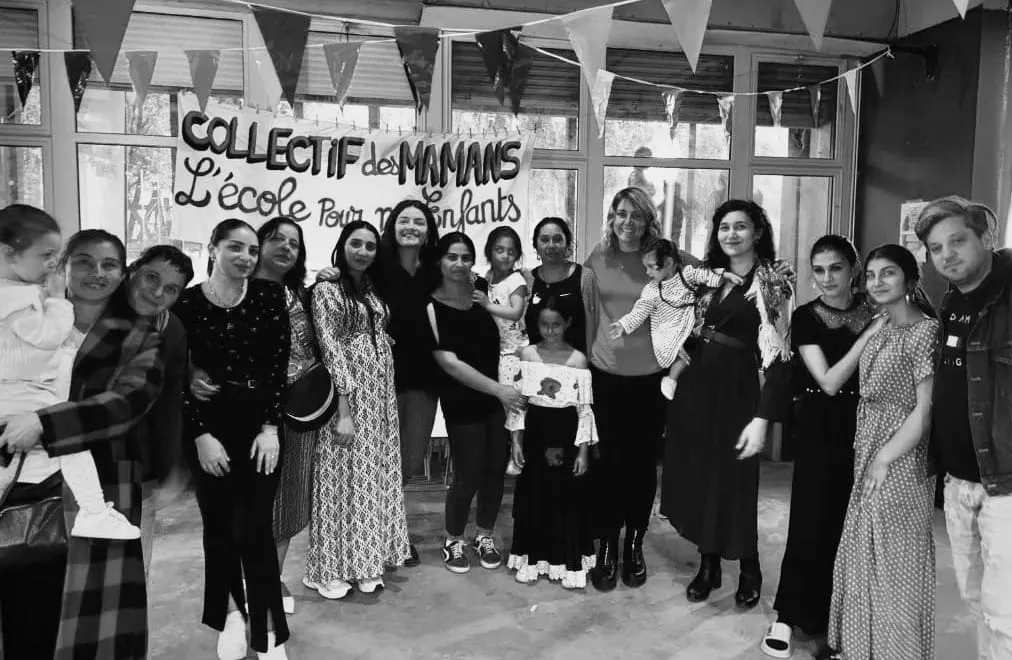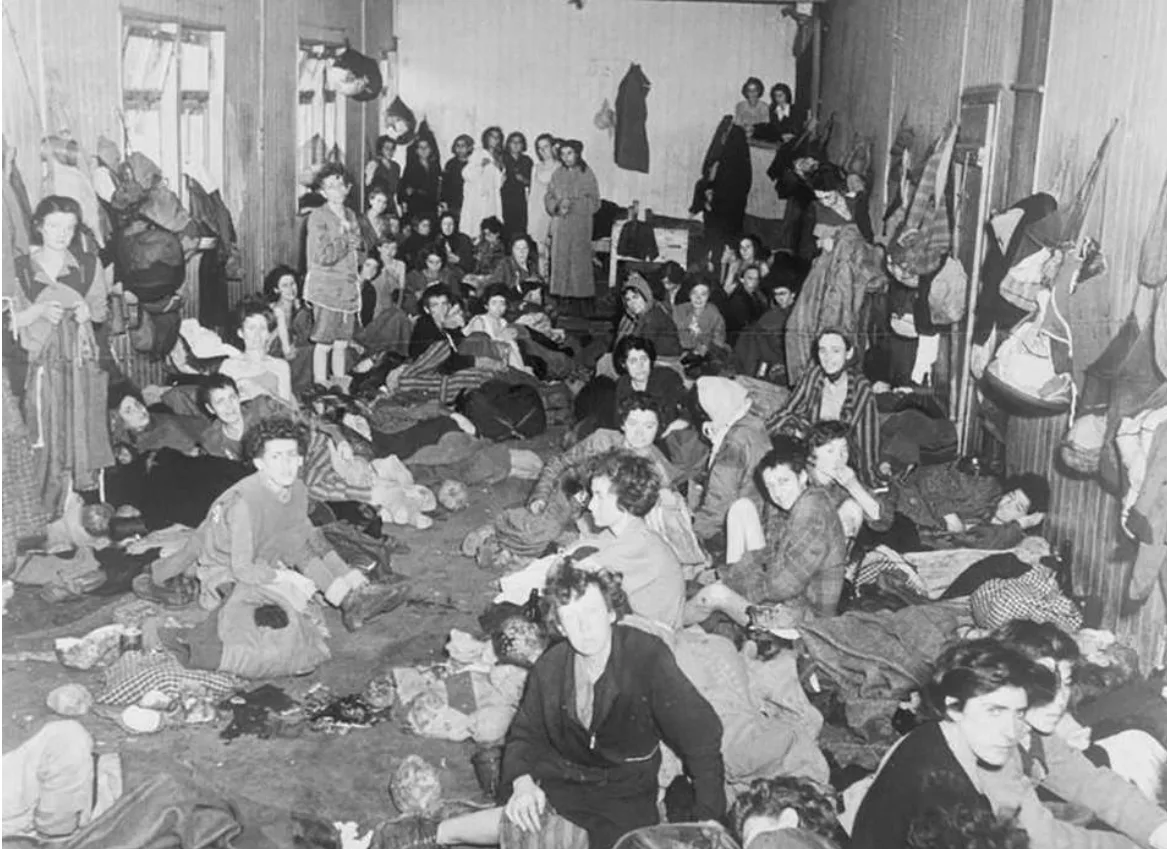Battle story
The battlefield is the hearts of the people
EPISODE 9/9 : the battlefield is the hearts of the people
By Pierre Chopinaud
(Previously…)
But nothing could be done: no words could give her courage. Fear and resignation had taken over: her fear as a mother was the source of our downfall. She refused to act, and that was her most pressing right. From her point of view, she had nothing to lose except what she felt was already lost, just as it had been lost to her at birth: her child’s dignity.
“
“Sometimes, for a greater good, one must go through a lesser good: even a small evil. It is the eternal question of the relationship between ends and means.”
The battlefield is in people’s hearts. And history is impure. Sometimes, for a greater good, one must go through a lesser good: even a small evil. It’s the eternal question of the relationship between ends and means. And to understand this, to overcome the fear in Marina’s heart, the mothers’ collective had to this time instill an even greater fear. It was a moral dilemma. It’s wrong to force someone to do something they don’t want. But giving up the fight to be morally pure meant condemning all children like Marina’s daughter to never go to school. It meant losing everything the collective had gained over the past year, and even more, it meant losing the children here, but also in French Guiana, in Mayotte, all the children in France who live in shantytowns. Wasn’t that an even greater evil? What use would our clear conscience be in the face of the thousands of children who would fall back into the garbage bag of lives that don’t matter?
This problem is as old as the hills, as old as David and Goliath. And very often, activists respond to it with their heads, with their reason, like the German Enlightenment philosopher Immanuel Kant: “Act always and everywhere in such a way that the maxim of your action is universally true.” If I lie once, I make a law of lying. No just end justifies an unjust means. An evil means corrupts its end.
“in the field of action or around it, those who prefer to keep their conscience absolutely pure, at least according to the idea they have of it (because the rules of purity are relative to each person), are very often those who do not necessarily need the change sought by action”
But the strategists of his time responded to Immanuel Kant: “You, the philosopher, in your room, your hands are clean, but that’s because you don’t have any hands.” This means: you are a man who knows nothing about action. For the field of action is not one of pure rationality, and the moral law only applies to those who do nothing. They will always have a clear conscience.
This is why, in or around the field of action, those who prefer to keep their consciences absolutely pure, at least according to their own ideas of it (because the rules of purity are relative to each individual), are often those who do not necessarily need the change sought through action. They often need the purity of their conscience more than to get their hands dirty.
Now, the members of the mothers’ collective all necessarily needed the change they sought through action: because the dignity of their children was at stake; It was this keen awareness of the need for change that had driven them into action and enabled them to build power, climb the ladder, and win victories.
They hadn’t been able to convince Marina to continue the fight through hope; they wouldn’t lose the entire war, however; they would convince her by “terrorizing” her. It was the lawyer who took the responsibility of getting her hands dirty. Fear prevented her from acting; fear would force her. Lawyer Anina Ciuciu said that if she didn’t appear before the Council of State, she would bill her for the entire procedure from the beginning of the fight. She would owe her an immense debt, and she wouldn’t let her go. It was a bluff, of course. Marina had seen Anina ready to fight the Minister; she wasn’t ready to fight Anina: she was more ready to confront her husband.
W
“Marina had been afraid of Anina, but now she was proud and happy: she and the others had won not only against the lady at the ticket office, not only against the mayor, not only against the rector, but against the Minister of Education, against the State.“
On D-Day, she was ready, along with the other mothers, to enter the Council of State chamber. We had launched the offensive. The names of the mayor and Marina’s daughter were all over social media. There were already articles in the press. People all over France, by the thousands, were signing the petition. The mothers of the collective, dressed as if they were going to church, entered the grand gold and purple halls of the Palais Royal, where the highest court of the French Republic sits, to reclaim the value of their children’s lives.
To dodge sentencing, the minister personally called the mayor of the local school that very day to force her to enroll the little girl in school. It was a race against time: if she were enrolled before the judge ruled, the French Republic would avoid humiliation. Imagine the mayor’s face that morning in front of her phone? Imagine the face of the judge at the Montreuil court who ruled in favor of the mayor against Marina? Imagine the face of the rector who perhaps had, in one way or another, given her the order?
.
“They had killed the “big boss,” won the game. The game was over“
As we left the Council of State, the mothers held up a large banner, their children ran and played between Buren’s famous black and white columns. The child had been registered, the Minister had not been sanctioned, but we had won! And we were already talking about it, the press was there: “a collective of mothers in precarious situations has won against the State,” wrote the Mediapart journalist the next day, who had been following our adventure since the first day. Maria’s mother had been afraid of Anina, but now she was proud and happy: she and the others had won not only against the woman at the counter, not only against the mayor, not only against the headmaster, but against the Minister of Education, against the State.
They had killed the “big boss,” won the game. The game was over.
The headmaster, even if he had nothing to do with the judge’s improbable decision, had made an irremediable mistake. Believing he was crushing us, he had given us a weapon to strike harder. Our rights were even more firmly entrenched in the law. The minister must have banged his fist on the table, and his blow must have resonated throughout all levels of the administration.
A few weeks later, we learned that the rector had been dismissed from his duties. Was it because of our campaign? We will never be certain. All that remains is for us to draw a final conclusion.
“We had not only affected the structure but we had profoundly transformed it.”
In the following days, Lucile’s phone started ringing again in her office at Askola. It was the usual bureaucrats. They were calling to make threats and announce that the administration was undergoing reform. The rector’s office would now intervene immediately when a mayor prevented a child from entering school. But in return, they had to lay down their weapons: no more press, no more courts. Indeed, since that day, the rectorate systematically intervenes when an illegal refusal is reported, and the mayor complies. We had not only affected the structure, but we had profoundly transformed it, at least locally.
But the threats were pressing: the bureaucrats had been forced to reform their practices, but it had clearly cost them money, and they were just waiting for one thing: to make them pay.
A few weeks later, the collective legal proceedings concluded. The one associated with the major campaign launch: “The Return of…” Faced with threats and intimidation from bureaucrats, including the intimidation of cutting public funding from Askola (which desperately needed it for its daily work as a school mediator), the team of leaders decided it was best not to make a splash.
On this occasion, we learned that the rector had been replaced: was it because of us? We don’t know. But we like to think so.
We have conquered an island, but it is the archipelago that must be tackled. The fight for justice is never satisfied. That is why for thousands of years the battle of David against Goliath has been fought and recounted…”
In the end, the wolf had not only been beaten, but had finally left the forest. And we won again: the mayors and the new rector were condemned once again. We didn’t shout it from the rooftops. The Askola Association had been financially jeopardized. And the big change, unexpectedly, we had achieved before this grand finale. Had we won? Not quite.
Because we know that if those in power, thanks to us, have changed their practices, they only do so when the rectorate’s services are contacted against a mayor by a parent who knows the procedure. What about the hundreds, thousands of parents who live in shantytowns, squats, on the streets, and who arrive alone at the counter? It was undoubtedly to allow themselves to continue to disregard the lives of their children that the bureaucrats, by giving in to the mothers’ collective, bothered to threaten the Askola team.
We have conquered an island, but it is the archipelago that must be conquered. The fight for justice is never sated. That’s why for thousands of years, the battle of David against Goliath has been waged and recounted…
To be continued…


